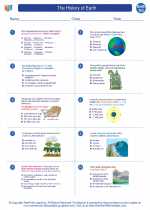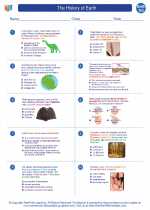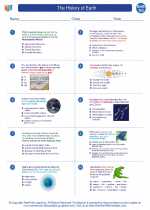The History of Earth -> nutrient cycling
Nutrient Cycling
Nutrient cycling is the movement and exchange of organic and inorganic matter back and forth between the living and non-living components of an ecosystem. It involves the processes of nutrient uptake, utilization, release, and recycling within the ecosystem.
Key Nutrients
The key nutrients involved in nutrient cycling include carbon, nitrogen, phosphorus, and sulfur. These nutrients are essential for the growth and development of living organisms within an ecosystem.
Processes of Nutrient Cycling
Nutrient cycling involves several processes, including:
- Uptake: Living organisms absorb nutrients from their environment through processes such as photosynthesis in plants and nutrient uptake in animals.
- Utilization: Organisms use the absorbed nutrients for their growth, metabolism, and reproduction.
- Release: Nutrients are released back into the environment through processes such as decomposition of organic matter and excretion by organisms.
- Recycling: Nutrients are then recycled within the ecosystem, as they are taken up by other organisms or returned to the soil and water for future use.
Importance of Nutrient Cycling
Nutrient cycling is crucial for the sustainability and productivity of ecosystems. It ensures that essential nutrients are continuously available for the growth of plants and other organisms, and helps maintain the balance of nutrient levels in the environment.
Human Impact
Human activities, such as deforestation, agriculture, and industrial pollution, can disrupt natural nutrient cycling processes, leading to nutrient imbalances and environmental degradation.
Study Guide
When studying nutrient cycling, it is important to focus on the following key areas:
- Understanding the role of key nutrients in the ecosystem.
- Learning the processes involved in nutrient cycling, including uptake, utilization, release, and recycling.
- Exploring the importance of nutrient cycling for ecosystem sustainability and productivity.
- Examining the impact of human activities on nutrient cycling and the environment.
[Nutrient Cycling] Related Worksheets and Study Guides:
.◂Earth Science Worksheets and Study Guides High School. The History of Earth

 Worksheet/Answer key
Worksheet/Answer key
 Worksheet/Answer key
Worksheet/Answer key
